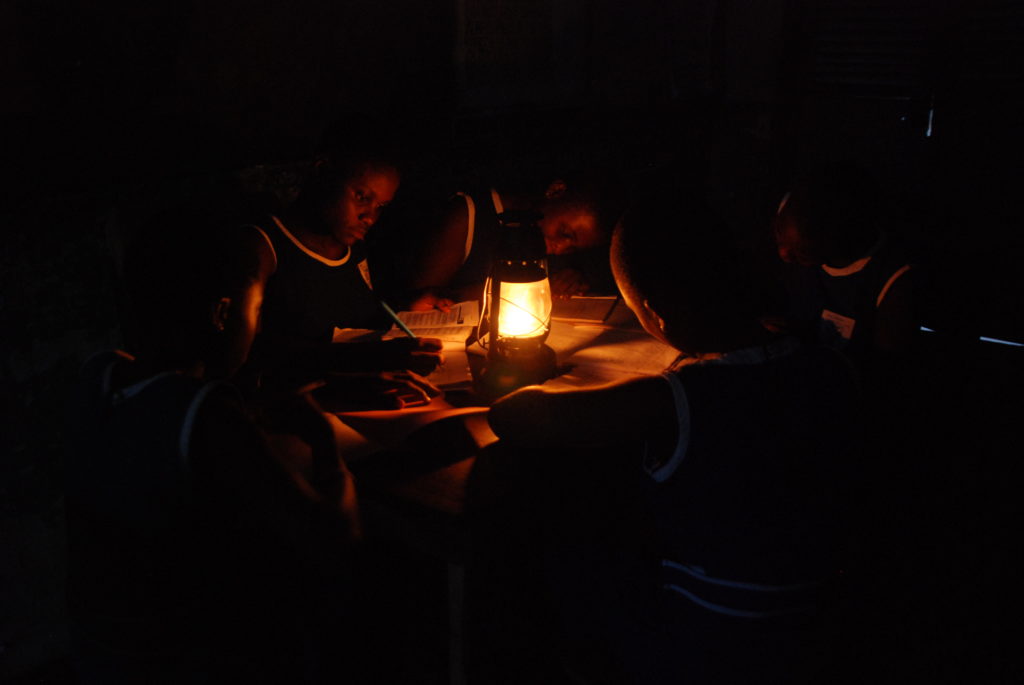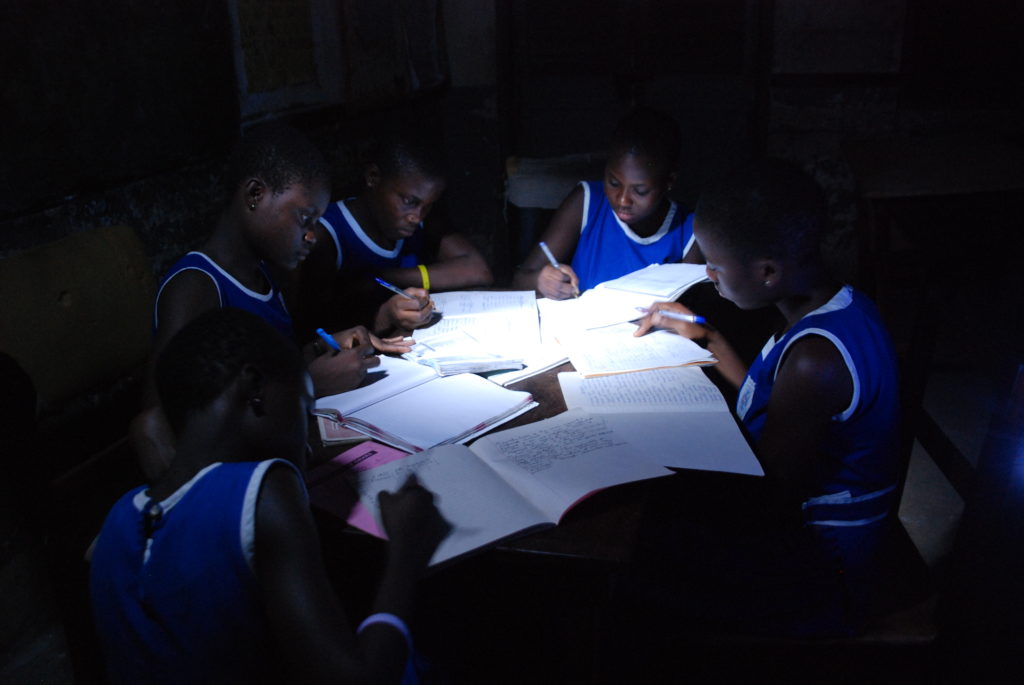Today, there are about 733 million people worldwide living without access to electricity – down from 1.2 billion in 2010. Despite this significant increase, at the current rates of progress, the world will reach only 92 percent electrification by 2030 – falling far short of the SDG7 goal of universal energy for all by 2030. To close this projected gap, decentralized energy systems will continue to be vital, especially in rural areas.
Among those living without access to electricity in 2020, 80 percent lived in rural areas around the world, and 77 percent—about 568 million people—were in sub-Saharan Africa. The majority of those living without modern energy services rely on kerosene, candles, battery torches, or other fossil fuel-powered technologies for basic lighting. These traditional solutions are expensive, harmful to health, hazardous, and polluting, and limiting. They resign the poorest people on the planet to a life of energy poverty, which constrains their access to quality public services (including healthcare, communications, and water) as well as impeding access to economic opportunities, education, and livelihood development.
Off-grid solar products, on the other hand, can provide services that go far beyond lighting, including stand-alone systems to power the needs of households, public institutions like schools and health centers, as well as for farms, business, and other productive uses.
A group of studying children switch from kerosene to solar – for a brighter, safer light. ©Lighting Africa
Lighting Global is the World Bank’s initiative to rapidly increase access to off-grid solar energy for the hundreds of millions of people living without electricity world-wide. Managed by the Energy Sector Management Assistance Program (ESMAP), we work with governments, the private sector, development partners, and end-users, continually innovating to unlock key market barriers and enable access and affordability to those that would otherwise be left behind. Our support has expanded to technologies that go far beyond lighting, including stand-alone solar systems to power the needs of households, farms, businesses, schools, and health centers, and more. We operate with funding gratefully acknowledged from ESMAP and their donors. Learn more about How We Work >
Geographical Expansion
For over a decade, the Lighting Global program has been at the forefront of the drive to expand access to modern solar energy services for people living without reliable grid electricity. Our work with off-grid lighting and energy began with the launch of the first pilot program in Kenya under the Lighting Africa program in 2009.
In just over a decade we’ve expanded our program activities across the African continent, into Asia, and to geographies around the world. With this expansion and a global focus on contributing to the achievement of SDG7 – affordable and sustainable energy access for all – we are retiring the Lighting Africa and Lighting Asia program names, even as we continue to support off-grid solar energy in these regions and beyond, under the Lighting Global program. Learn more about Where We Work >
Evolution of Program Management
Originally a joint IFC-World Bank initiative, we began our mission with intertwined objectives — to enable access to clean modern energy services, by catalyzing a sustainable off-grid market. Our goal has always been for this market to eventually function without our continued foundational market support, which was initially so important to the industry’s development. Today’s US$2.1 billion annual market reflects a vibrant ecosystem of manufacturers, distributors, retailers, investors, donors, development professionals, and others — together demonstrating that we have met our objective to kick-start a self-sustaining market.
With these developments in mind, IFC mainstreamed much of their Lighting Global work into their operations, and stepped back from their program co-management role in the Summer of 2021, with ESMAP now leading Lighting Global with a renewed focus on continuing to expand access to those that would otherwise be left behind. We continue to collaborate closely with IFC on increasing energy access through off-grid solar energy, leveraging the respective strengths of the IFC and ESMAP/World Bank to work towards achieving SDG7 – affordable and sustainable energy access for all. Learn more in Frequently Asked Questions >
Looking forward
Under ESMAP, Lighting Global will continue to leverage World Bank operations and policy dialogue with Governments to further expand off-grid solar markets to reach those still living without energy access around the world. The remaining unconnected homes are increasingly predominantly rural, remote, poor, and living in contexts suffering from fragility, conflict, or violence (FCV). With the more easily-reached already largely served by the sector, we will focus increased attention on scaling up financing and pro-poor targeting to ensure no one is left behind. Learn more about our Focus Areas >



